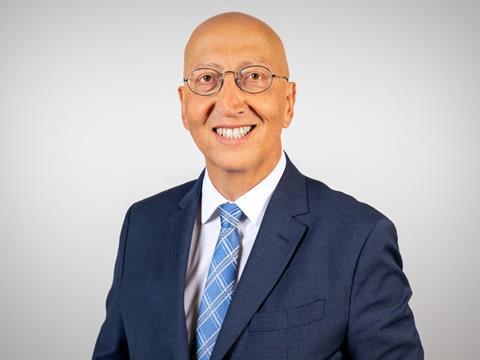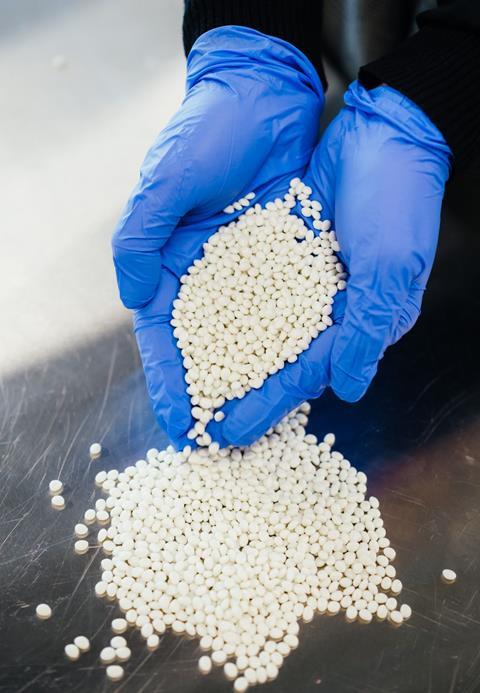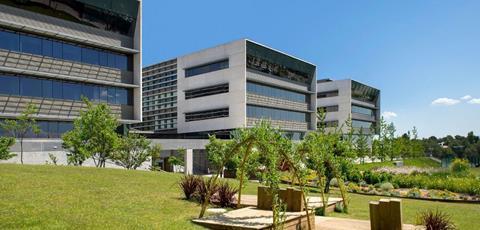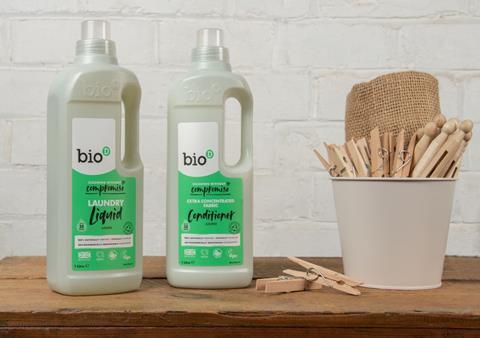Plastics as a packaging material are still posing a considerable challenge within the circular economy. Berry Global is taking steps towards boosting plastic packaging sustainability with its CleanStream® recycling technology and planned global centre of excellence in Barcelona. Elisabeth Skoda speaks to Jean-Marc Galvez, Berry CPI president, to find out more.

Elisabeth Skoda: How far along is Berry Global on its journey to make 100% of its fast-moving consumer packaging reusable, recyclable, or compostable by 2025?
Jean-Marc Galvez: We are ahead of schedule, and very pleased with the momentum in the business. It is a complex task to transform a business and a whole industry towards circularity starting with reduce, reuse and recycle across all those dimensions. We are committed to the key targets that you can find in our Impact 2025 plan. We have reduced our Scope 3 emissions ahead of schedule. We had said back in 2019 that we would reduce them by 8%. In 2022 we already achieved that goal. So we set ourselves another goal: to reduce Scope 3 emissions by 25% by 2025. Similarly, for Scope 1 and Scope 2, we are now at 21% compared to 2019, so we are close to our 25% objective. On the emissions side, we are ahead of schedule.
On recyclability, it’s a similar story. Across all the businesses, we ensure to transform our portfolio towards full recyclability and towards 30% recycled content by 2030 in our packaging, using data. When we design for recyclability, we use RecyClass as a key metric, always looking to achieve RecyClass A, B or C certification. The objective is to bring clarity and standardization to the way we operate, with RecyClass our reference for recyclability. We are aiming to get to 100% recyclability by 2025. We are also on track for the goal of using 30% recyclate by 2030. We have secured more than 300,000 tons of recycled content of circular resins, and we have invested in a world-class recycling facility to support the transition to a net zero economy and to support that important commitment.
ES: Were there any particular roadblocks or challenges you had to overcome to get to this point?
JG: When thinking of a challenge, I always also think about the opportunity. We have focused on what our customers are looking for. Our customers have made big bets to move to full recyclability, reusability or compostability by 2025 and usage of recycled content between 10 and 30%. There is a lot of complexity across the portfolio. It’s all about making sure to be clear on the objective, but also on the data and the tools that are going to be used to be effective. Clarity and standardisation have been an opportunity for us to tackle the challenges that the complexity will bring.
ES: Despite measures to the contrary, according to an OECD report, the amount of plastic waste produced globally is on track to almost triple by 2060. What can be done against that?
JG: When you look at it from where we stand today, there is still a lot of leakage. A lot of this leakage occurs in developing countries - around 40 to 50%, while it’s down to around 6% in the developed economies. It is obvious that we need governance on waste management across the globe.
I think the UN treaty that is being developed will help to address this. At the same time, what we need is leadership. Berry Global, as one of the largest companies in the packaging industry is playing its part, is investing and working on innovations. When you think of Coca-Cola’s tethered closures – that’s Berry, or the McDonalds Friends reusable cups – that’s also Berry supporting our customers.
At our new recycling facility in Leamington Spa, we take domestic waste and transform it into FDA-certified circular resins for sustainable packaging. So overall, I would say that despite the fact that there is still a lot to be done, the train has left the station and we in the industry are taking the actions that are needed to address and eradicate plastic waste pollution. We have made it very clear that Berry Global will be part of the solution. Plastic waste is an opportunity to reduce CO2 emissions, and even energy and water usage. Ultimately, I’m positive about our ability to address ocean plastics pollution to ultimately, thanks to plastics, minimize greenhouse emissions. We must not forget that plastic has one of the best carbon stories among all the substrates available.
ES: You talked about Berry Global’s recycling facility – could you tell me more about the CleanStream® technology, described as a closed-loop system to mechanically process domestically recovered household waste back into food-grade packaging. What is its scope, and what applications is the material suitable for?

JG: After years of building and planning, we have officially opened our new recycling facility in Leamington Spa in the UK. It is addressing a clear need for contact-sensitive applications. We can demonstrate that plastic waste from domestic bins can ultimately be collected, sorted, processed and transformed into a product -major brand owners of this world will use in personal care and cosmetics applications. This was not obvious when we started some years ago.
We have started our first commercial deliveries recently. It’s very exciting to consider the waste reduction we are going to achieve as a result of this. We are going to use more than 40% of the PP domestic waste that is available in the UK, so more than 40% of the domestic PP waste will be transformed into food-certified applications. The product already has an FDA non-objection letter to be used in these contact-sensitive applications, which is a proprietary Berry technology. Ultimately, this shows that plastic recycling plastics works, and it does work in the UK.
ES: You mentioned that Berry Global invests heavily in research and development. What will research at the new global centre of excellence in Barcelona focus on?
JG: We have an approach of producing innovative products that will impact the lives of billions of consumers around the world, providing convenience. After all, packaging has to provide that convenience to consumers. Sustainability is core for Berry, and particularly addressing the plastic waste issue. It is very important for us to send the signal that we are part of the solution and that we are investing in recycling capabilities apart from the packaging capabilities that I mentioned before.

We are investing in R&D and innovation, and the centre will be a place where we are going to continue to develop new products and new sustainable packaging together with our customers. We’ll ensure that we will accelerate the pace towards circularity, because ultimately we have to accelerate to ensure that we can beat all the projections on plastic waste forecasts that you mentioned before.
The last thing I’d like to mention is education. When you think about the perception of plastics, we are not there yet. Public perception is somewhat skewed, as plastics have the best carbon story. Ultimately plastics is going to be one of the best materials moving forward towards a net zero economy. It’s important that we continue to educate, but always with data, science and actions, and ultimately, consumer perception will change.
ES: On the subject of virgin plastics versus recycled plastics, do you think that the innovations you’re doing around recycled plastics might also help to lower the price for recyclate? I understand that at the moment virgin plastics still can be cheaper than recycling plastics.

JG: This is a question of supply and demand.As we get to move more of our resins to recyclate and as we get up to scale, once we have cost-effective solutions, more than 50% of our resins will be derived from recycled resins. When you think about price, you have to think about value, and today, all the circular products we are bringing forward are highly valuable. Ultimately, they will deliver tremendous benefits to the consumers because they will address the social challenge through the design of this packaging. They will still ultimately be cost-effective.
ES: Are there any new and exciting projects in the pipeline line for Berry?
JG: Berry is a Fortune 300 company that has more than 40,000 employees on more than 250 sites. We merged with RPC four years ago and became truly global, and we continue to invest strongly across the globe. Europe is the place where Berry is driving its supply transformation, and the innovations that we are developing in Europe are being globalized and they are scalable. As a result, the recent investments I mentioned before in recycling capabilities and R&D will continue. Ultimately, I will say that from a sustainable packaging standpoint, you can rely on Berry to do well by doing good.
Advancing the net zero economy can only be achieved if we can dedicate resources and produce enough recycled content, so that we can give plastics multiple lives and keep resources in use and out of the environment. With the recycling technologies we have, especially Berry’s CleanStream® proprietary technology, we have a key solution moving forward, even before we get advanced recycling technologies that help us move forward on food contact applications. But I think it’s going to be very important that we keep investing, not only in packaging but also in recycling. As I said, recycling plastics does work, definitely in the UK and Europe.











No comments yet